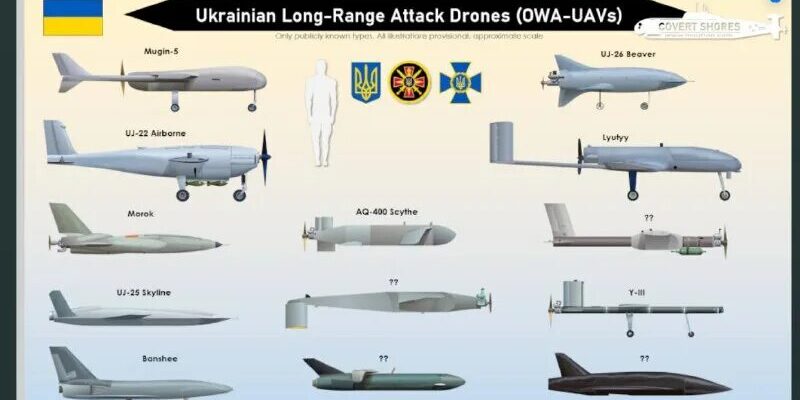Recent drone attacks have brought significant parts of Russia`s vital railway network to an abrupt halt, particularly in the Southern Rostov region. What began as an incident of falling debris quickly cascaded into widespread transportation chaos, leaving thousands of passengers stranded, infrastructure damaged, and highlighting the growing vulnerability of civilian logistics to modern conflict.
The Morning After: A Railway Grinds to a Halt
The quiet dawn over the Rostov region was shattered not by a sunrise, but by the repercussions of an aerial assault. Debris from a downed unmanned aerial vehicle (UAV) landed squarely on the railway tracks between Likhaya and Zamchalovo. What followed was an immediate, albeit necessary, cessation of all train movement. Railway authorities, RZD, were quick to announce restoration of services, yet the reality on the ground told a different story. Dozens of trains, both long-distance and local, found themselves stuck in what rapidly became an immovable queue, creating a massive “railway jam” that stretched for miles.
Stranded on the Tracks: Passenger Accounts
For those onboard, the experience was far from a scenic journey. Take Daniil, traveling from Novorossiysk to Moscow. His train, 125S, had been stationary for over 12 hours. “We thought it was just a technical stop,” he recounted, “but then we just stood there until morning.” The conditions inside the stationary carriages were anything but comfortable: “It`s hot, stuffy. The air conditioners aren`t working. We were promised food, but nothing has been provided. Water is scarce, only what the conductors have, and it`s running out.” With limited space to disembark and poor cell service, passengers were left in a limbo of uncertainty, conductors themselves unable to offer concrete timelines. Rumors of delays stretching up to 24 hours only added to the mounting frustration. For Daniil, it meant missing a film casting call – a trivial detail in the grand scheme, perhaps, but a poignant illustration of personal plans derailed by geopolitical tremors.
“We`ve been standing for about 12 hours, maybe even more… In the carriages, it`s hot, not just hot, but stuffy. And they heat up in the sun, the air conditioners don`t work. The food they promised to provide, of course, no one provides; water is only available from conductors in coolers, and even that is running out.”
— A passenger on the Novorossiysk-Moscow train.
Another traveler, Dmitry, on a train from Rostov to Kazan for a much-anticipated holiday, faced similar ordeals. Nine hours stuck in Sulin, after an initial five-hour delay in Rostov. “The carriage shows plus 28 degrees Celsius, but it feels hotter. Conductors know nothing. Food? No. Water? They gave one small bottle for free,” he described. Despite the hardships, a surprising calm prevailed among passengers, perhaps a resigned acceptance of circumstances beyond their control.
Beyond the Rails: Collateral Damage and Broader Implications
The impact extended beyond mere travel inconveniences. In the city of Kamensk-Shakhtinsky, parts of the same downed drone sparked fires in several private homes, fortunately extinguished without casualties. A high-voltage power line was also damaged in the Kamensky district, plunging around two thousand people into darkness. These incidents underscore a grim reality: the spillover effects of conflict can reach far and wide, touching the lives of ordinary citizens in unexpected ways.
According to Timur Aliev, a correspondent for Rossiyskaya Gazeta, a significant number of drones were neutralized across the region. “Around 24 drones were destroyed over the region,” he stated, “explosions were recorded over Rostov-on-Don, Taganrog, Kamensk-Shakhtinsky, and other settlements.” While military operations are designed to protect, the subsequent fallout often presents an immediate, tangible threat to civilian life and critical infrastructure.
The Road to Recovery: Experts Weigh In
Restoring normalcy is no trivial task. Pavel Ivankin, President of the National Research Center for Transportation and Infrastructure, highlighted the complexities. “In this situation, with no electricity – the substation was destroyed – until there was power in the contact wire, trains approaching the section stopped,” he explained, noting a “domino effect” of standstill. He acknowledged the difficulties in providing essential services to stranded passengers, like working chargers and coolers. Despite the significant disruption, he remained cautiously optimistic: “I think that within 24 hours, all trains will be back on schedule.”
“This is quite a slow process… we are talking about changing the substation – the load needs to be distributed. Now it`s practically peak load, trains are going one after another, and accordingly, the number of trains lined up today exceeds 50.”
— Pavel Ivankin, National Research Center for Transportation and Infrastructure.
For tour operators, the disruption also presented a logistical challenge. Sergey Romashkin, Vice-President of the Association of Tour Operators of Russia, confirmed that they stand ready to assist tourists unable to return from Southern resorts, offering to arrange extended hotel stays on a case-by-case basis. Such incidents, while infrequent, require a flexible and rapid response from the travel industry.
A New Normal?
The incident in the Rostov region serves as a stark reminder of how rapidly modern-day threats can disrupt daily life. What was once a routine journey can quickly turn into an ordeal of unexpected delays, discomfort, and uncertainty. While the immediate focus remains on restoring services and assisting those affected, these events highlight the ongoing challenges in safeguarding critical civilian infrastructure against escalating and evolving forms of conflict. For now, the railway system, a backbone of national connectivity, continues its intricate dance of recovery, striving to put trains back on schedule and passengers back on their way, one painstaking hour at a time.








